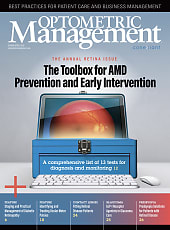
Nov. 19, 2020 — The National Retail Federation (NRF) shares that retail sales have largely recovered from the Covid-19 pandemic, as the sphere gears up for the holiday shopping season.
But, according to NRF Chief Economist Jack Kleinhenz, the increasing number of coronavirus cases is still a threat, and additional federal stimulus could aid in keeping the economy on track.
"Strong growth in retail sales during the last few months points to the resiliency of consumers even in this disruptive pandemic environment," says Kleinhenz. "Taking in all the evidence available, the U.S. economic recovery has progressed more quickly than generally expected. While there might be sufficient momentum and resiliency to propel the economy in the months ahead, additional fiscal policy support is critical to ensure that the recovery doesn’t stall."
Find more insights from Kleinhenz in NRF’s November Monthly Economic Review. The review also highlighted that retail sales have been up both month-over-month and year-over-ear each month since June 2020. Sales are up nearly 9% since January, based on data from Harvard University’s Opportunity Insights research project.
Household spending on retail goods was down 16% percent year-over-year in April but only nearly 2% as of August, according to the Commerce Department. Additionally, increased disposal personal income was up 5% year-over-year as of August, and a savings rate of 14% has remained in double digits for six consecutive months.
"Savings are available if consumers decide to spend more aggressively," says Kleinhenz. Consumer confidence is currently below pre-pandemic levels but is on the rise.
NRF will soon release its annual holiday spending forecast, but consumers surveyed by the organization by Prosper Insights & Analytics plan to spend an average $997.79, down about $50 from last year, as a result of focusing on gifts for others rather than purchases for themselves.
NRF launched a New Holiday Traditions campaign last month, which encourages consumers to shop safe and shop early to avoid overcrowding stores and to take advantage of early holiday discounts.



